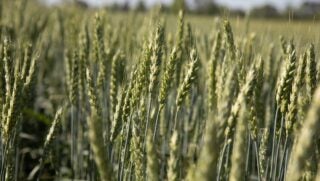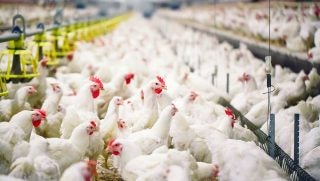In the spirit of Earth Day, Wrangler jeans has released a report highlighting how much of an impact sustainable cotton farming has on the environment. Wrangler evaluated 45 scientific reports to conclude the practices of conservation tillage, cover crops and crop rotation result in the removal of three times the amount of greenhouse gas emissions from the atmosphere as older farming methods.
“Wrangler believes that our supply chain does not begin with fabric or cotton. It begins with soil and the land itself,” said Roian Atwood, director of sustainability for Wrangler. “Preserving and enhancing the health of soil is critical and necessary to the preservation of America’s denim heritage and future generations of people who work the land. That’s why we’re committed to doubling our use of sustainably-farmed cotton over the next year.”
In the U.S., cotton is grown on approximately 12.5 million acres stretching from the Southeast to the Southwest. Cotton cultivation practices can disturb and degrade the soil with tillage, bare soil surfaces, chemical inputs, and continuous monoculture crop production. However, this emerging set of farming practices, used in combination, builds the soil’s capacity to function as a vital living ecosystem that sustains plants, animals and humans.
The report, “Seeding Soil’s Potential,” summarizes the findings of more than 45 scientific papers and reviews produced by academic, government and industry researchers. Wrangler’s soil health advisors that reviewed and validated the findings in the report include USDA’s Natural Resources Conservation Service (NRCS), The Nature Conservancy, and the Soil Health Institute.
“I’m grateful Wrangler has taken up this cause, because the potential to transform agricultural lands with soil health practices is tremendous,” said Wayne Honeycutt, President and CEO of the Soil Health Institute. “If farmers adopt these practices globally, we’ll have much greater resiliency in our food and fiber production. We’ll also have cleaner water and air, and we can draw carbon out of the air to regenerate our soils for current and future generations.”
Last year, Wrangler introduced its soil health pilot program to bolster the supply of sustainable cotton, championing growers who are leading the way and encouraging wider adoption of responsible farming practices. Today, the program includes five cotton producers representing farms in Halls, Tennessee; Athens, Alabama; Albany, Georgia; Conway, North Carolina; and Big Spring, Texas.
“We’ve experienced the benefits of combining these three practices,” said Eugene Pugh, the program partner and cotton farmer in Tennessee. “It’s allowing us to decrease our inputs while maintaining, and even improving, yield. And at the same time, our soil is improving with each passing season. That feels really good.”


